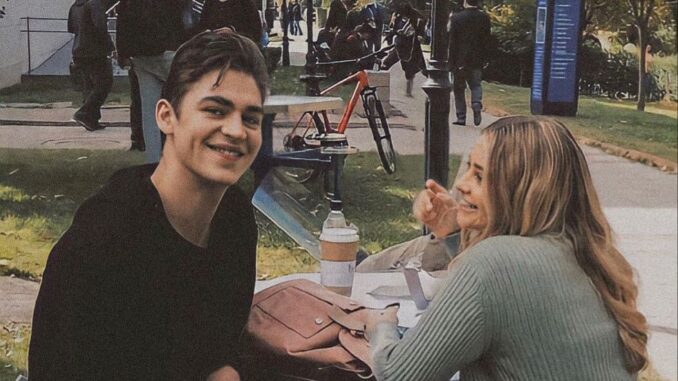
When After Everything 3 hit screens, many fans expected the usual dose of heartbreak, drama, and longing glances—but what they got was something deeper: a raw, emotional journey of redemption for a character we’ve grown to both love and question. Hardin Scott, the complicated, brooding lead of the After series, finally evolves in this latest installment. And not in a superficial, romanticized way—but in a genuine, uncomfortable, and beautifully honest one.
At the end of After Ever Happy, Hardin was left broken, reeling from his breakup with Tessa. For once, he couldn’t fix things with an apology or a dramatic gesture. After Everything 3 begins with that silence, with that solitude. For the first time, Hardin is truly alone. No Tessa, no distractions—just his guilt and his choices.
But what sets this film apart is how it doesn’t try to justify Hardin’s past behavior. Instead, it forces him to sit with it, reflect on it, and begin to untangle the emotional trauma and anger that shaped him. His decision to travel to Lisbon isn’t just a plot device—it’s symbolic. He’s not running away from his problems anymore; he’s running toward them.
In Lisbon, we see a more stripped-down version of Hardin. There’s no façade, no toxic romance clouding the narrative. He reconnects with a former flame—not to reignite old sparks but to make amends. He listens. He apologizes. He doesn’t expect forgiveness, and that’s the most powerful part.
One of the most emotional scenes in the film comes when Hardin confronts his mother. Their strained relationship has always hung over his story like a shadow, and watching them finally have a vulnerable, tearful conversation adds a new layer of depth. It’s a reminder that healing often begins at home, and that forgiveness isn’t a one-time event—it’s a process.
Hero Fiennes Tiffin delivers a standout performance in this installment. Gone are the fiery outbursts and impulsive decisions. Instead, he brings a quiet strength to the role—a sincerity that makes you believe Hardin is truly trying to become a better man. You see it in the way he speaks, the way he carries himself, and even the way he pauses before reacting. It’s subtle, but powerful.
Of course, After Everything 3 doesn’t give us a neat bow. Tessa isn’t magically back in Hardin’s arms. In fact, their relationship remains uncertain. But that’s the point. Redemption isn’t about winning someone back—it’s about becoming someone worthy of love, regardless of the outcome.
This film dares to slow things down. Instead of drama for drama’s sake, it leans into introspection. And while some viewers may miss the fiery chemistry of earlier installments, others will appreciate this new, more grounded tone.
In the end, After Everything 3 doesn’t try to erase Hardin’s past—it acknowledges it, confronts it, and begins to rise above it. It gives fans the redemption arc they’ve longed for, not by rewriting who Hardin was, but by showing who he’s choosing to become.
For a series that has always been about the intensity of young love, this final chapter shows something even more powerful: the strength of self-love, growth, and accountability.
